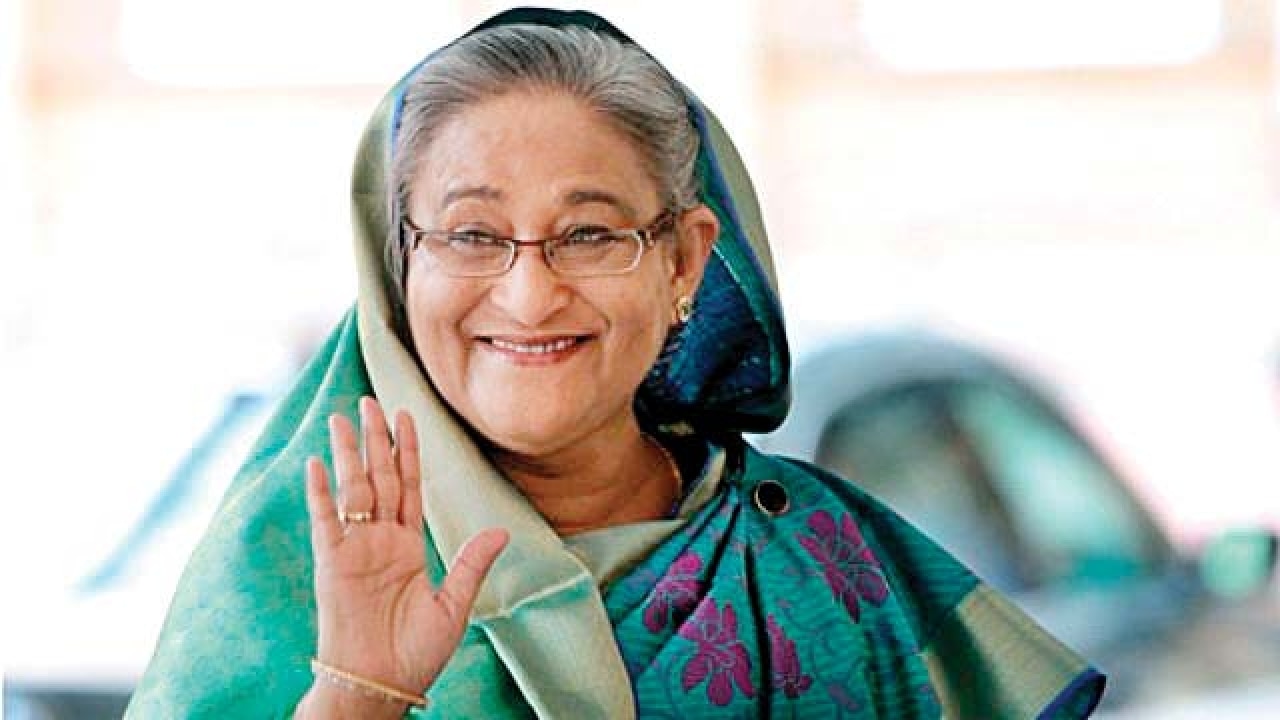
During Bangladesh Prime Minister Sheikh Hasina’s visit, she will be transported back to the time when she was living in asylum at Delhi’s Pandara Road. The city gave a comfortable abode to Hasina and her family from 1975 to 1981 after the gory events back home that killed her father and founder of Bangladesh, Sheikh Mujibur Rehman, with his wife and three sons on August 25, 1975. Hasina and her younger sister escaped death as they were in West Germany. Hasina’s late husband, MA Wazed Miah, was working as a nuclear scientist there and she was with him.
Admittedly, those were trying times for her. She was completely broken due to the senseless killings of her parents and siblings. With a hostile government in Bangladesh, there was no question of going back to her homeland. That was how she came to Delhi in late-1975 with her husband and two children, Sajeeb Wazed ‘Joy’ and Saima Wazed Hossain ‘Putul’. She briefly stayed at 56 Ring Road, Lajpat Nagar-3, and later at Pandara Road near Pandara Market. Now, Sajeeb Wazed ‘Joy’ lives in the US and daughter Saima Wazed Hossain ‘Putul’ is based in Canada. Sajeeb attended boarding school in India, including St. Joseph’s College in Nainital and Kodaikanal International School in Palani Hills, Tamil Nadu. He studied computer science at the University of Bangalore and then transferred to the University of Texas at Arlington in the United States.
DK Bose, a known face in the Delhi football circle and president of Hindustan football club, was among the lucky few who met Hasina at her Pandara Road flat several times. Bose said that his first meeting with her was organised by a Dhaka University academic. Bose recalls that during those meetings, Hasina and he would discuss the state of Bangladesh and Bangla literature at length. She was a great fan of Tagore’s poetry. Bose says he presented Hasina with many books by Bengali writers and remembered her as a decent and soft-spoken person. In Delhi, she was close to Subhra, the late wife of President Pranab Mukherjee. On her visit to Delhi in 2010, Hasina broke protocol to visit Subhra, whom she had befriended during her exile. When the First Lady passed away last year, she came to Delhi with her daughter to pay condolences to the President’s family.
Surprisingly enough, she was almost an apolitical person during those days even though she was the daughter of a fiery political leader. While she was in Delhi, India was under Emergency, and perhaps due to this reason, she wasn’t allowed to meet many people. It is said that there was no elaborate security cover around VIPs during those days. Her home was always surrounded by plain-clothed security guards. Awami League leaders used to visit her to persuade her to assume the leadership of the party. While still in India, she was elected as head of the Awami League. During her Delhi days, eminent journalist AL Khatib used to work as her assistant. Khatib had also authored a book ‘Who killed Mujib?’. It is still considered one of the most authentic accounts of the killing of Mujibur Rehman and his family.
In Delhi, Karol Bagh Bang Sabha and Minto Road Puja Samiti, which jointly held a huge protest march in front of the Pakistan High Commission when the Pakistan Army massacred lakhs of people in East Pakistan, also invited Hasina to their functions but she declined to attend. However, she was appreciative of their concern for the people of Bangladesh. While in Delhi, Hasina had not fully recovered from killings of her family members. She avoided talking about those traumatic events. In fact, Wazed Miah requested all those who came to meet her to not discuss the killings of her family. He was engaged in research work at a laboratory of the Atomic Energy Commission of India during 1975-1982, the period of exile. Wazed Miah was hand-picked by Sheikh Mujibur Rahman to be his daughter’s groom and Hasina married him in 1968. Even as she discusses bilateral ties with Indian leadership in Delhi, it is possible that the memories of her days in exile may return to haunt her.
The author spoke to several people to piece together Sheikh Hasina’s stay in Delhi.